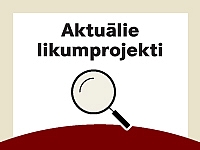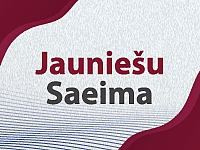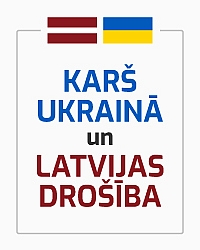On Thursday, 27 March, the Saeima adopted in the second reading the Draft Law on the Amendments to the Criminal Law, which provides that persons who publicly deny, vindicate, glorify, or grossly trivialise the aggression by the USSR and Nazi Germany against the Republic of Latvia can be held criminally liable.
The amendments envisage that such an offense will be punishable with a prison sentence of up to 3 years, temporary detention, community service or a fine.
The amendments to the Criminal Law set forth a number of other significant changes, including introduction of criminal liability for soliciting under-aged prostitutes.
The Draft Law envisages that solicitation of an under-aged prostitute will be punishable with a prison sentence of up to 5 years, temporary detention, community service or a fine. A person will be held liable if the offence is committed intentionally, that is, if the person knows that a prostitute is under age, points out Andrejs Judins, Chairman of the Criminal Law Policy Subcommittee of the Legal Affairs Committee.
The Legal Affairs Committee has also reviewed the provisions of the Criminal Law which envisage criminal liability for sex crimes and which inter alia broaden the definition of the act of rape. The new wording expands the definition and states that rape is an act of sexual intercourse committed by means of abusing the trust of the victim or by using the perpetrator’s authority or any other type of influence over the victim. It will be possible to apply the relevant provision when, for example, a boss abuses his/her authority to engage in sexual intercourse with a subordinate, says Judins.
The amendments to the Criminal Law will also be the next step in the fight against the so-called legal drugs because they provide for imprisonment of persons who violate the prohibition of circulation of new types of psychoactive substances. Currently, the competent authority can temporarily ban the circulation of and withdraw from circulation a new intoxicating substance that has entered the market; moreover, the proposed amendments will make it possible to hold criminally liable those who violate this prohibition.
The amendments call for a prison sentence of up to 2 years for persons who produce, buy, store, transport, transfer for sale or sell the new types of psychoactive substances or products containing these prohibited or controlled substances. Such offenders will be required to perform community service or pay a fine.
The Draft Law also provides for revocation of a driver’s licence for a period of 10 years for drunk drivers who have caused road accidents resulting in casualties. Currently, drivers’ licences can be revoked for a maximum of 5 years.
The proposed wording of the Criminal Law envisages that for a violation of traffic or vehicle operation regulations while under the influence of alcohol or narcotic, psychoactive, toxic or other intoxicating substances resulting in serious bodily injury or death of a victim, the applicable sentence is deprivation of the right to operate a vehicle for up to 10 years. Concurrently, it will be possible to punish such an offender with a prison sentence of 3 to 15 years.
The Draft Law on Amendments to the Criminal Law is still to be considered in the third reading by the Legal Affairs Committee, which is the responsible committee, and at the plenary sitting of the Saeima.
Saeima Press Service









